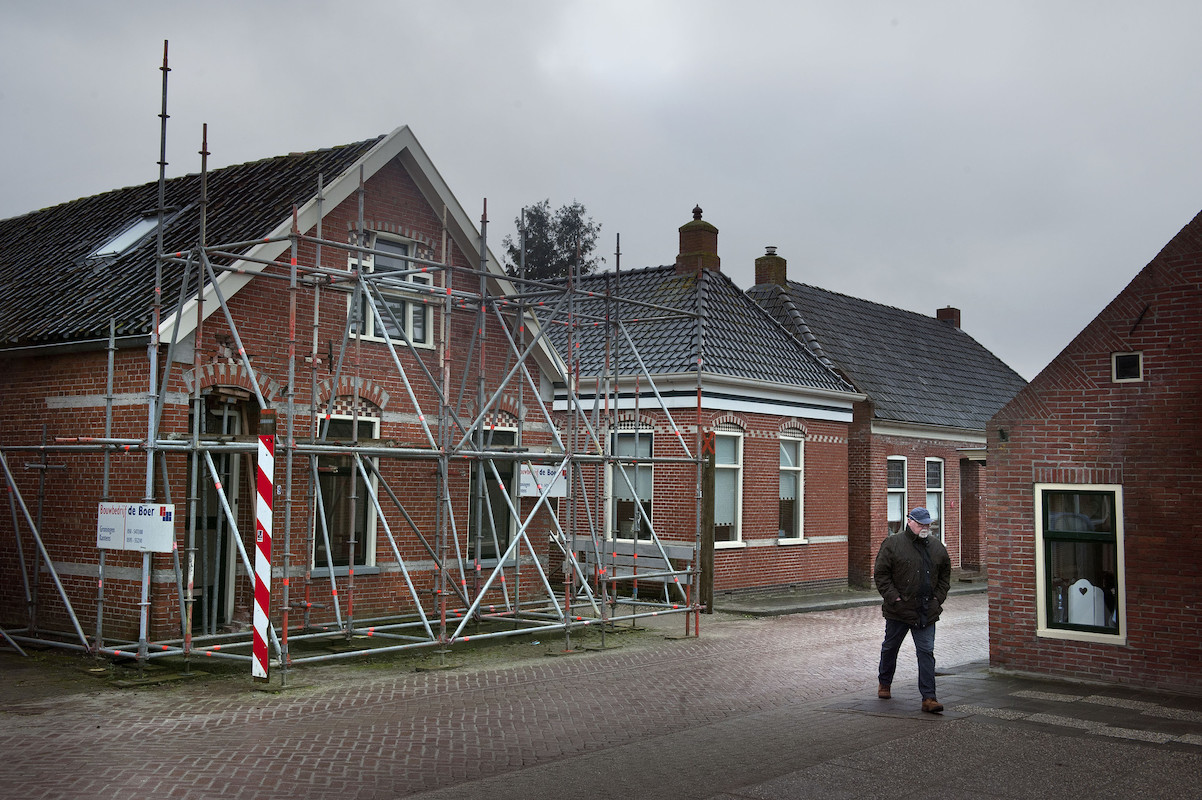Implementing parties paint a gloomy picture of housing reinforcement operation
Ever-changing frameworks, complexity, poor communication and no financial guarantees. These are only some of the bottlenecks mentioned by professionals who are working in key positions in the housing reinforcement operation. Residents are suffering from this, mentally broken by the system. Professionals who know how the residents are feeling are keen to join discussions on how to improve the housing reinforcement process, but are not given a lot of room to do so. These are the conclusions by Dr Katherine Stroebe and Prof. Tom Postmes of the University of Groningen, based on their most recent research as part of the Gronings Perspectief project.
How do the professionals that are executing the housing reinforcement operation view its progress? How is the operation impacting residents and communities and how can they be given the best support? These questions were the focus point of this study as part of Gronings Perspectief, conducted at the request of the National Coordinator Groningen, in which 18 professionals from municipalities, the NCG (Northern Centre for Healthcare Research), care organizations, housing corporations and building companies were interviewed.
Complications during the operation
The professionals describe the housing reinforcement operation as being complex, with rules that keep changing, failing communication and financial insecurities. No-one seems to have a complete overview. Because these rules keep changing, it is becoming harder and harder for professionals to explain the decisions and actions being carried out. Katherine Stroebe: ‘We are shocked by the image painted by the professionals. We have noticed that, according to the professionals, the continuously changing policy frameworks are part of the problem. Last month, new agreements were made and policymakers are very optimistic about them, but whether the implementing parties agree with this remains to be seen.’
Consequences for residents
Professionals paint a gloomy picture of the impact that all of this has on residents. Their control over their homes and futures is being taken away from them. The housing reinforcement operation is very taxing – many residents feel tired and at their wit’s end. Their faith in institutions is fading or has gone completely. Villages and neighbourhoods are suffering under the housing reinforcement project. Katherine Stroebe: ‘It’s striking that many professionals state that the reinforcement operation inevitably leads to neighbourhood quarrels. We think that this is a shame and that there’d probably be a lot to gain if these quarrels could be avoided.’

Powerless professionals
There were some highlights: the professionals are passionate and are trying their best for the residents. Over the past years, attention for the psycho-social impact of the housing reinforcement operation is also growing. But the professionals who best know what the residents are experiencing feel powerless: they wish that their knowledge of this had been taken into account more in the development of the procedures and in the provision of information towards residents. Katherine Stroebe: ‘The fact that the psycho-social consequences are receiving more attention is a good development, but it would also be good if the professionals who are close to the residents and the building work would have a say in the reinforcement approach and the communication of it, as well.’
About Gronings Perspectief
Gronings Perspectief is a collaboration between the University of Groningen, the Groningen Municipal Health Service (GGD) and the Groningen Social and Cultural Planning Office. The researchers are assisted by a supervisory committee comprising the relevant municipalities, the GGD, special interests group Groninger Bodembeweging, cross-sectoral collective of social organizations Groninger Gasberaad, the National Coordinator Groningen, the Province of Groningen, the Veiligheidsregio (safety region) Groningen and the Association of Groningen Villages, as well as scientific experts. The team led by Dr Stroebe and Prof. Postmes has been investigating the health, sense of safety and future prospects of residents of all municipalities located in the gas extraction area on behalf of the National Coordinator Groningen. A panel of Groningen residents periodically complete a questionnaire on safety, health and future prospects. All of the findings of Gronings Perspectief project are published on the website www.groningsperspectief.nl
| Last modified: | 18 February 2021 1.57 p.m. |
More news
-
24 March 2025
UG 28th in World's Most International Universities 2025 rankings
The University of Groningen has been ranked 28th in the World's Most International Universities 2025 by Times Higher Education. With this, the UG leaves behind institutions such as MIT and Harvard. The 28th place marks an increase of five places: in...
-
05 March 2025
Women in Science
The UG celebrates International Women’s Day with a special photo series: Women in Science.
-
16 December 2024
Jouke de Vries: ‘The University will have to be flexible’
2024 was a festive year for the University of Groningen. In this podcast, Jouke de Vries, the chair of the Executive Board, looks back.
